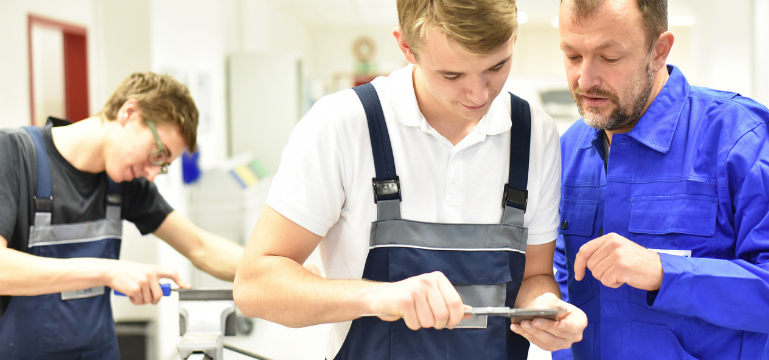Providing effective support for apprentices with additional learning needs

Quick links:
Information about the school/provider
Gower College Swansea works in partnership with seven subcontractors to deliver apprenticeship programmes at levels 2 to 5 across Wales. The college directly delivers approximately 85% of its apprenticeship provision, with subcontractors delivering 15%. Apprenticeship provision has grown substantially since 2016, from around 250 learners to approximately 3,000 in 2022-2023. The provider offers a broad range of apprenticeships across sectors, routes, and levels, working with over 1,200 employers.
Context and background to the effective or innovative practice
Government reports consistently highlight employment disparity for individuals with disabilities. In 2022, 49% of individuals with a disability were employed, compared to 82 % of non-disabled individuals (Welsh Government, 2023). This is even more pronounced for people with learning difficulties. Reports also reflect disabled individuals’ employment rates were disproportionately affected by the COVID-19 pandemic (Welsh Government, 2021). This emphasised the need to make apprenticeships more accessible.
Description of nature of strategy or activity
Gower College Swansea reviewed and improved their approach to identifying and supporting apprentices with disabilities and those presenting with potential Additional Learning Needs (ALN); promoting the extensive support available to learners with disabilities, sensory impairments, ALN, and work/life-limiting health conditions. Many individuals have faced learning and work challenges without formal diagnosis or support until embarking on their apprenticeships.
In 2018, the college introduced their ‘Apprenticeships for All’ initiative. Across internal and external delivery partners, they developed an inclusive ‘team around the apprentice’ approach including:
- Restructuring their neurodiversity department to integrate dedicated specialists within the WBL team; with regular operational and managerial case-conference meetings between WBL and ALN teams
- Using internal and external specialists for diagnostic assessments
- Developing resources to enhance specialist diagnostics and support
- Revising apprenticeship admissions processes, for earlier identification of potential disability/ALN
- Implementing an apprenticeship progression pathway for ILS students through the Project Search internship programme; this provides valuable work experience in sectors of interest to support progression onto paid, long-term employment through a supported apprenticeship
- Implementing an awareness-raising and CPD programme for apprenticeship delivery staff and managers
- Liaising with employers to raise awareness of ALN and extend support and adjustments to the workplace
- Utilising Welsh Government mental health and well-being funding for mental health first aid training and developing an online toolkit for apprentices, delivery staff and employers
The College’s ALN/Neurodiversity support process is below.

What impact has this work had on provision and learners’ standards?
This initiative has had a substantial impact in recent years (2020-2021 to 2022-2023). The resulting cultural change is substantially enhancing parity:
- Recruitment of apprentices with disabilities increased from 1.6% of apprenticeship starts in 2015 to 10% in 2022/2023
- 375 learners with ALN or disabilities embarked on an apprenticeship journey
- Through the administration of 62 external diagnostic assessments, a comprehensive understanding of learners’ needs was acquired, enabling the provision of bespoke support strategies for learning, work and life
- 44 internal diagnostic assessments were conducted, enabling early identification to inform access arrangements
- Celebrating achievement, 165 apprentices with ALN or a disability have successfully completed their apprenticeship framework
- Currently there are 295 individuals with ALN or a disability on level 2 to level 5 apprenticeships who are on track to succeed
- Increased skills, knowledge and confidence for delivery staff to identify and discuss potential ALN with learners and their employers to access support
- Continued year-on-year improvement trends for apprentices with ALN or disabilities: for example, attainment has increased from 49% to 70%; retention has increased from 68% to 84%; with rates almost equal or exceeding those of apprentices without additional learning needs
How have you shared your good practice?
The college has delivered professional learning programmes for all internal and external (sub-contracted) delivery partners and created resources and training for relevant employers. They have given presentations to employer boards and shared case studies through National Training Federation for Wales and Colegau Cymru for the work-based learning provider network. Finally, the college has secured UK awards for this practice, creating case studies and news articles to share good practice.